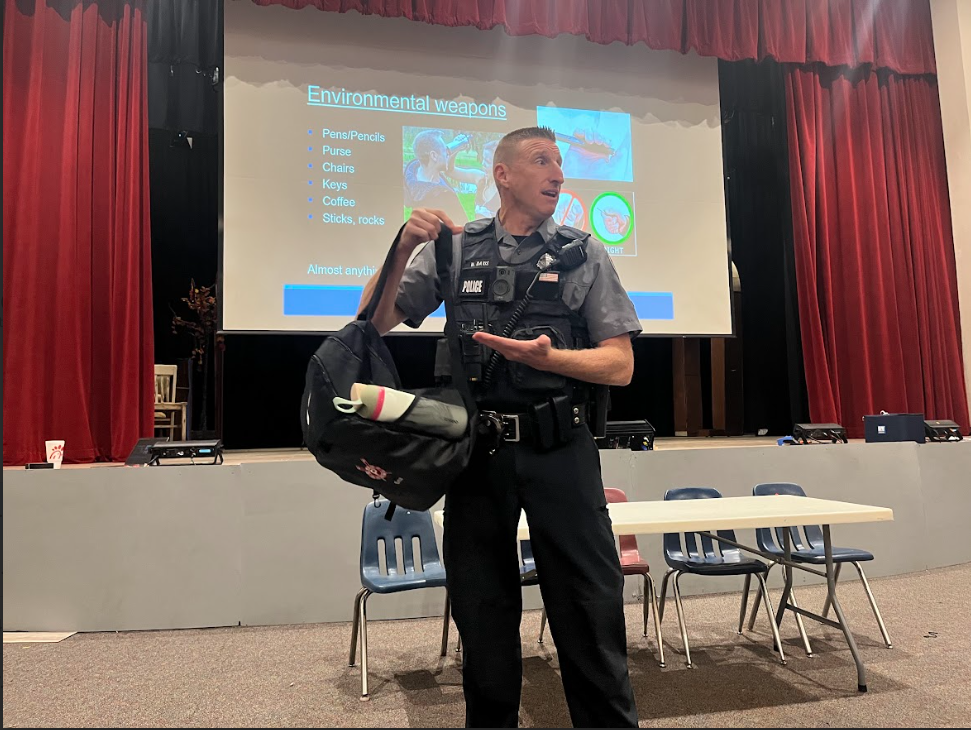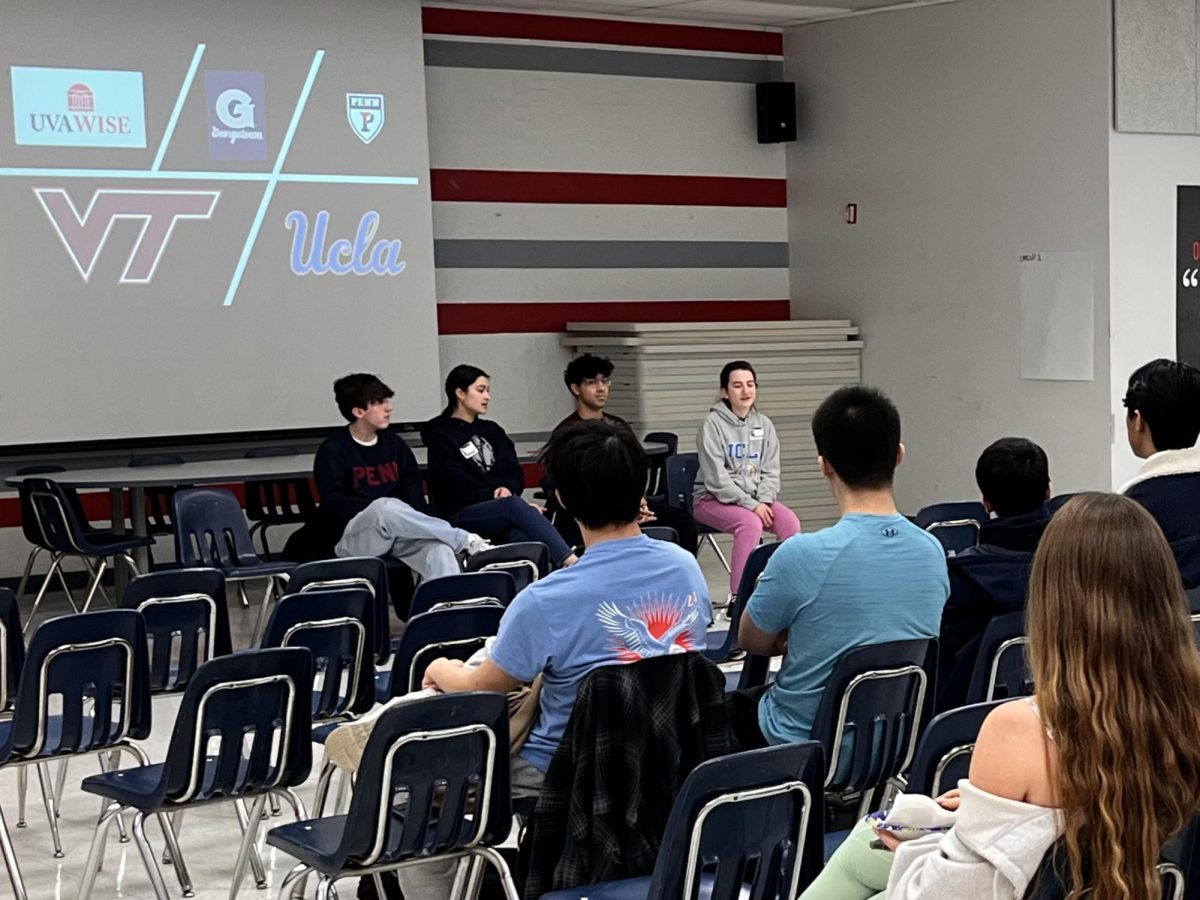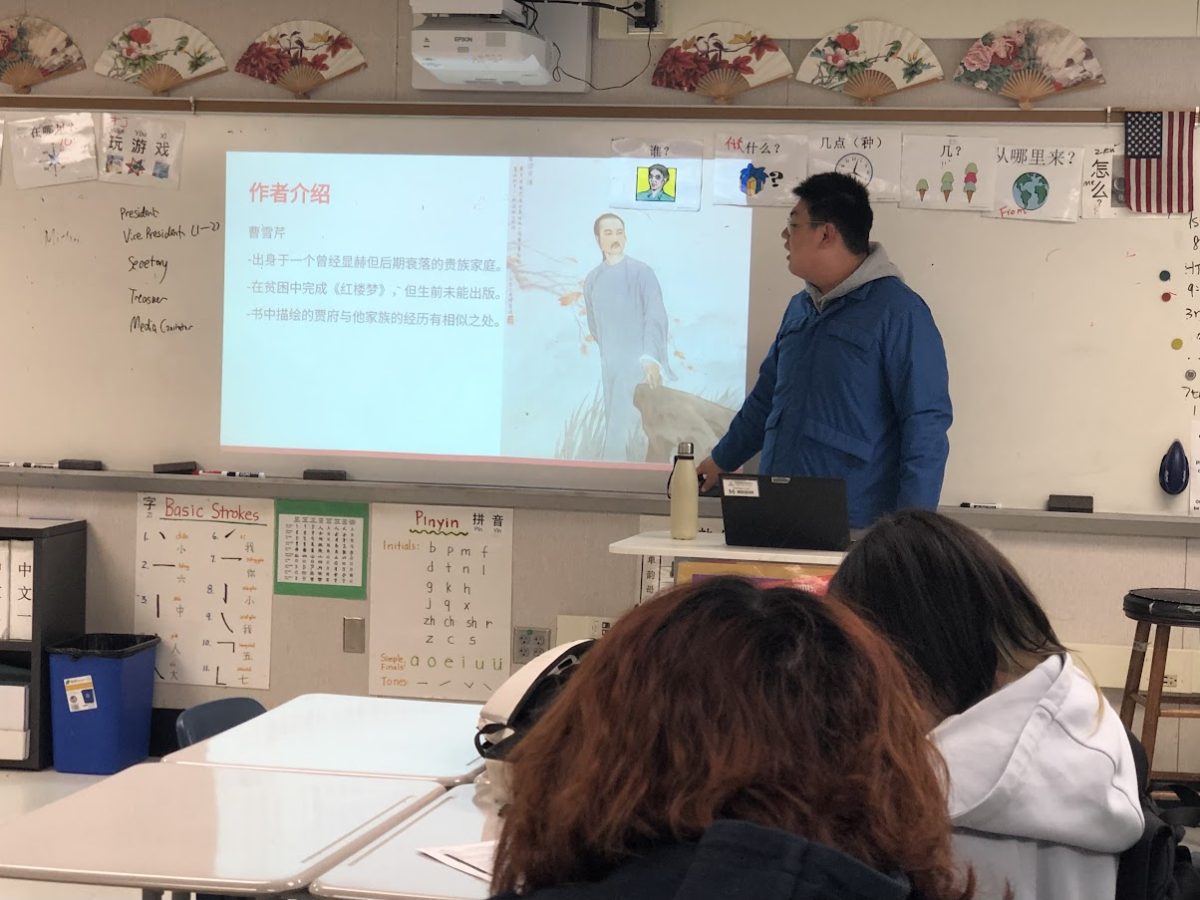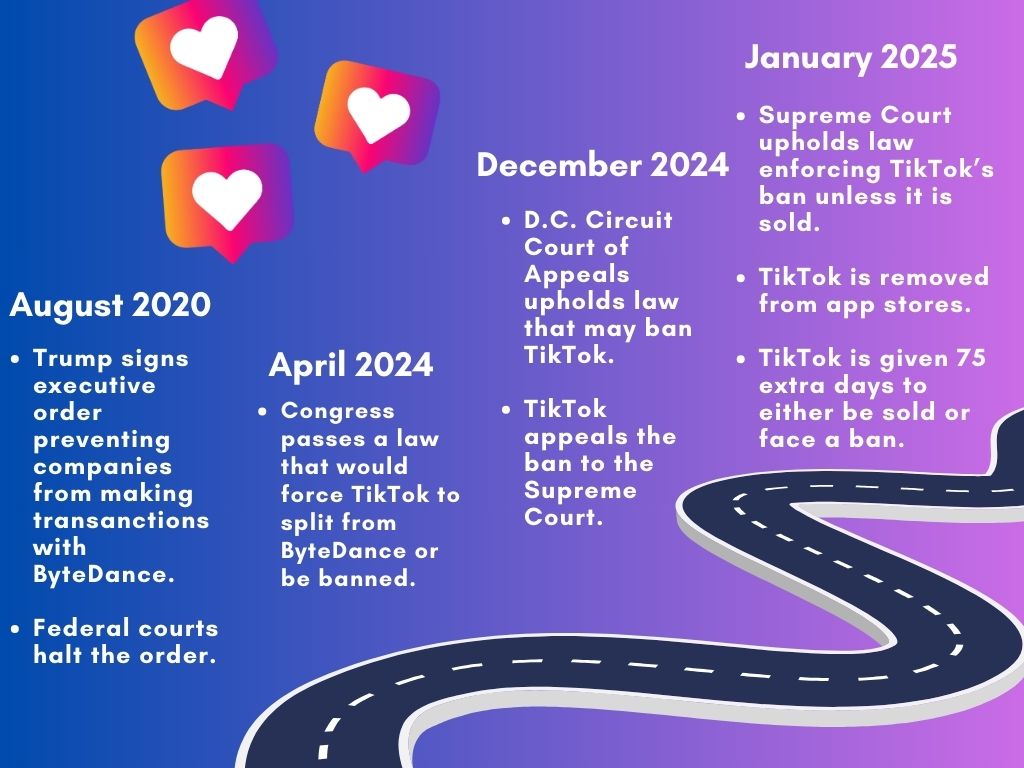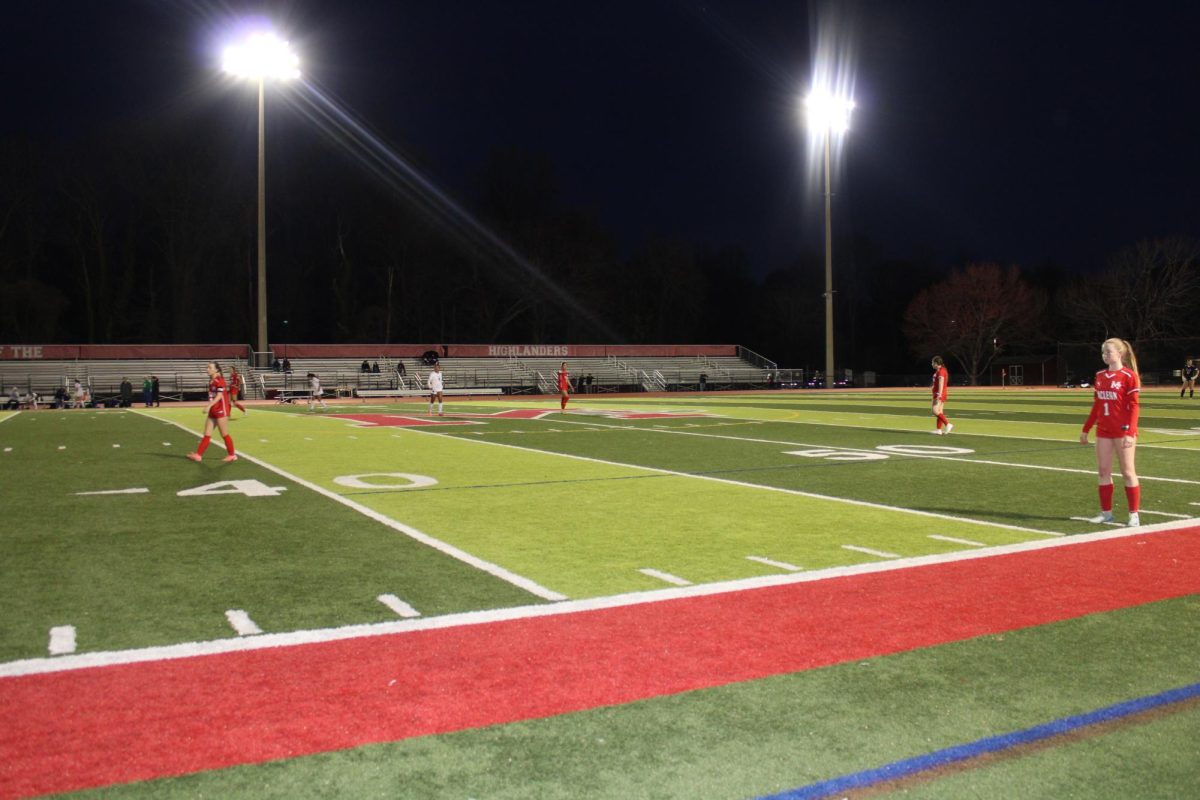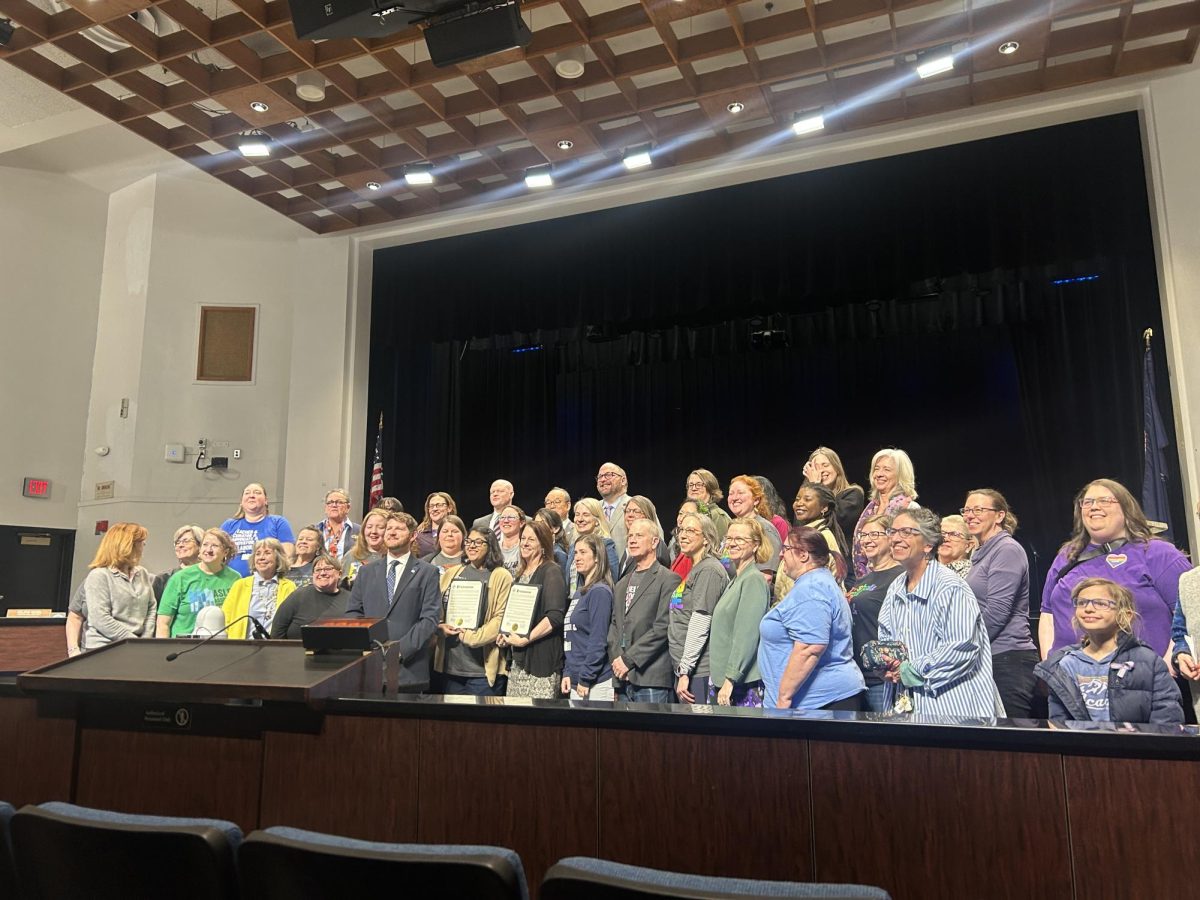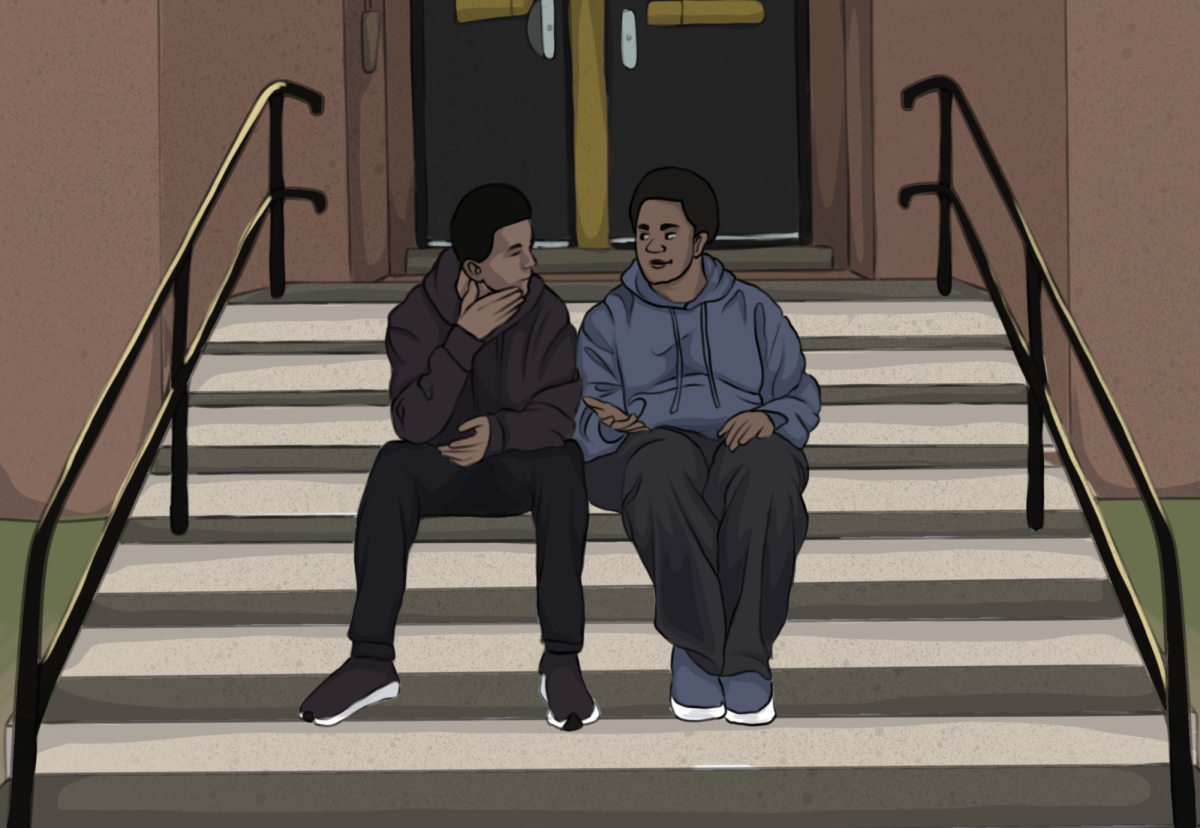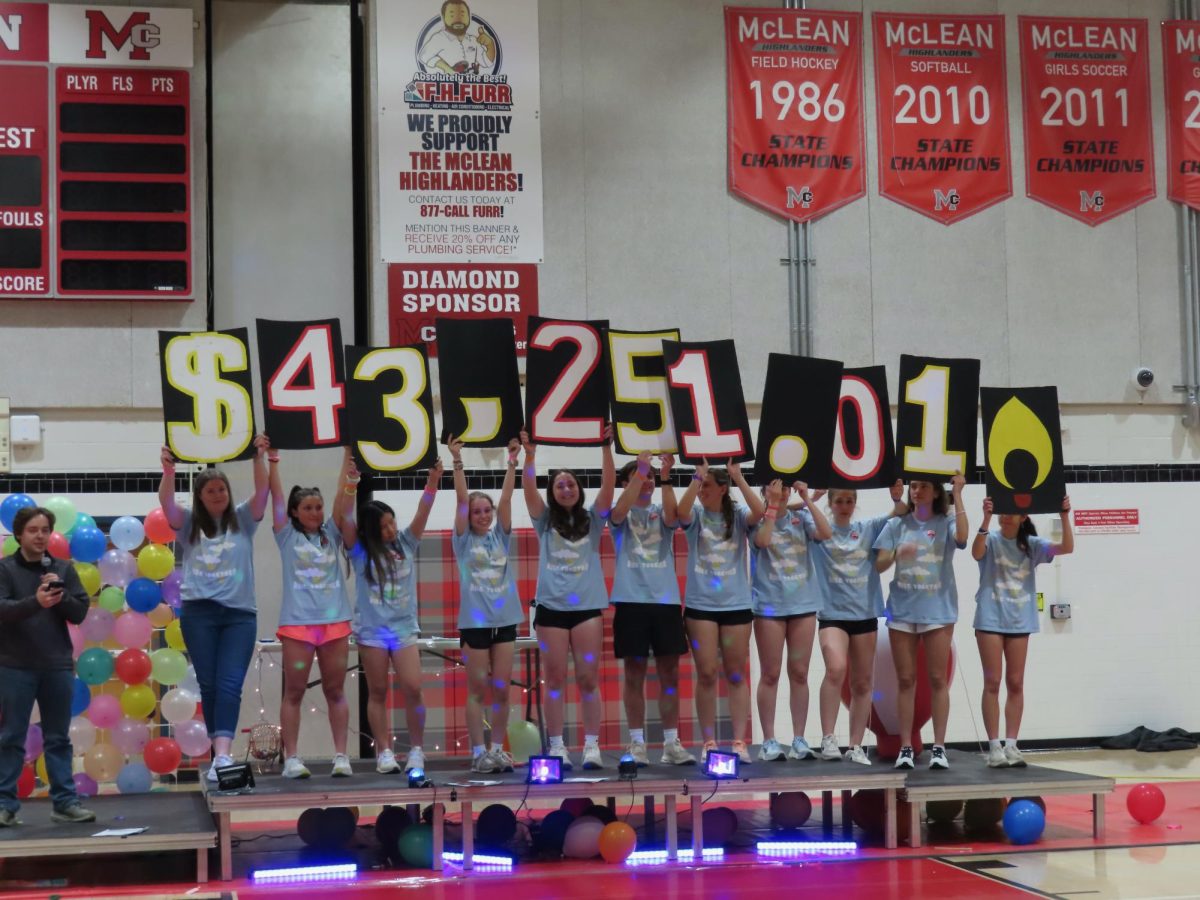On Nov. 15, the Girls Leadership Committee (GLC) hosted a safety workshop during Highlander Time Flex, educating students on the potential dangers they may face in their lives. Led by the McLean Student Resource Officer (SRO) Scott Davis, the seminar advised attendees on how to be aware of their surroundings and stay vigilant in new environments. The workshop concluded with a panel of female staff members participating in a Q&A session, sharing personal insights based on their experience as women.
“[GLC] is a club focused on female empowerment [but] the reality is that the world has a plethora of dangers for women,” said GLC president Allie Deutsch, managing editor of The Highlander. “I hoped to shift the direction of the club to tackle some of these issues in a more serious way.”
Davis discussed various topics from digital safety, car safety, situational awareness, self-defense and college safety.
Digital Safety
A teenager snapping a photo of their favorite store or restaurant and posting it on social media is common nowadays, as well as uploading selfies and shouting out friends or school events. However, Davis cautions students about caressly revealing personal information on social media, emphasizing that not everyone perusing these websites has good intentions and may weaponize a person’s posts to track them down.
“You’re just advertising the location of everywhere you go [when you post like that],” Davis said. “That’s all social media is: a big advertisement for you guys. So remember, be aware of who you give your information to.”
The presentation also unveiled the hidden risks of public, unsecured Wi-Fi networks. A stressed student may rush to an open cafe table, hoping to get work done with a cup of coffee in hand. Without thinking, they click to join the cafe’s free Wi-Fi. What they may not realize is that while they’re focused on their project, someone is accessing their information through the public wifi.
Even more jarring is that the wifi network may not even belong to the cafe.
“There’s a lot of people that are making fake, free Wi-Fi,” Davis said. “Be very careful logging onto the Wi-Fi unless you know it’s the right one.”
Car Safety
Since many McLean students drive or will begin driving soon, the seminar devoted a section to parking lot safety tips. While most drivers focus more on their destination than where they’re parking, Davis discussed how this mindset can put people in a vulnerable position.. The seminar stressed the importance of choosing well-lit parking areas at night, surveying the lot before exiting the car, having keys ready prior to leaving a building or event and the most obvious yet easily forgettable: locking car doors immediately after entering the vehicle.
“Lock the doors, then do all your stuff [like] check your makeup [or] change the song playing on the radio,” Davis said. “Think about that [because] people get carjacked.”
Davis then segued into instructions on what to do if a student suspects that their car is being followed. Davis emphasized to not drive towards home or another personal location; rather, the driver should make a series of right turns to both confirm that they’re being followed and to throw the follower off.
“[If] you make a right turn, another right turn, another right turn–[you’re] back at the beginning,” Davis said. “Why is that person making three right turns with you? Now there’s a clue [that you’re being followed].”
Davis also informed students about fake police cruisers that are designed to deceive people. He reminded students that it’s okay to call 911 to confirm if it’s actually the police when they feel unsure about pulling over.
Situational Awareness & Self-Defense
Going for a run is a lot better with a peppy song boosting the spirits, but there are dangerous downsides to wearing headphones or earbuds that cut off outside sounds. The seminar advised music-loving joggers to keep one ear free so they can hear nearby noises. Although unknown attackers do seem particularly intimidating, Davis debunked the common misconception that assaults only happen by strangers.
“The crazy part is not that many crimes happen to you by people you don’t know,” Davis said. “10% are strangers and 90% are friends and family.”
In the unfortunate circumstance that self-defense becomes necessary, Davis explained how sharp points of the body like the knuckles and elbows are the most effective at fighting off an attacker when aimed at sensitive spots such as the nose, eyes, throat or stomach. Furthermore, everyday items like pointy keys or heavy backpacks can make powerful impromptu weapons if needed. However, Davis urges students to evaluate situations and decide on the safest course of action rather than immediately resort to defense, even if that sometimes means compliance.
“Don’t worry about your valuables [over your life],” Davis said. “[Items] can be replaced.”
Additionally, Davis went over the legal aspects of defending oneself in the case of an attack. When the perpetrator is no longer a threat, continued violence can not be categorized as self-defense and thus becomes illegal. Moreover, only credible threats of bodily harm or actual physical contact can constitute the need for self-defense. Verbal provocation and insults do not count.
“[You] can’t keep coming after somebody just because they said something [to] hurt your feelings,” Davis said. “Go back to that old saying, sticks and stones will break your bones, but words will never hurt you.”
College Safety
For many McLean seniors, the prospect of a new campus and dorm life is exciting. The seminar Q&A panelists presented tips for this next chapter in their lives, addressing the potential dangers of college living. Students, especially women, were warned not to walk campus alone at night, to accept drinks from others or leave drinks unattended at social events or to keep dorm doors unlocked. The panelists also invalidated the expectation that women should always be polite and gracious, even when uncomfortable.
“[Women] don’t have to fake anything or pretend to smile if [they] feel creeped out by someone,” science teacher Allison Miller said. “Be rude, be weird, stay alive, as my [favorite podcast] hosts say.”
Personal experiences were briefly addressed by the panelists. Social studies teacher Amanda Williams described an incident where her friend got into a false Uber in South Carolina, after which the driver assaulted and killed the unsuspecting passenger.
“Uber has a lot of safety features built-in now,” Williams said. “So you should always check the license plate, car and driver to make sure it matches what’s in the app.”
Although Davis wasn’t allowed to perform any self-defense strategies in front of the students, Davis did share that an all-women self-defense class is offered at all of the Fairfax County police stations.
“If you do the class, you get to see guys in full [self-defense training gear],” Davis said. “You actually get to hit them and see how it really feels.”
Even though self-defense tactics weren’t demonstrated, the seminar succeeded in preparing students for emergency situations.
“I think moving forward people will be more aware, and the presentation overall [helped] with confidence in what to do in certain situations,” sophomore Kiara Crispin said. “It was also a good refresher for things that I already knew.”
The workshop served as another piece of the GLC’s mission to support a better and safer world for women, teaching the difficult but essential subject of self-defense and gender-based endangerment.
“It’s a really awesome workshop that [the GLC] did. I’ve never heard about [women’s safety] being talked about in high schools,” Miller said. “I want students to feel empowered [and] if there’s any way to help even one student, then [it’s] worth it.”


